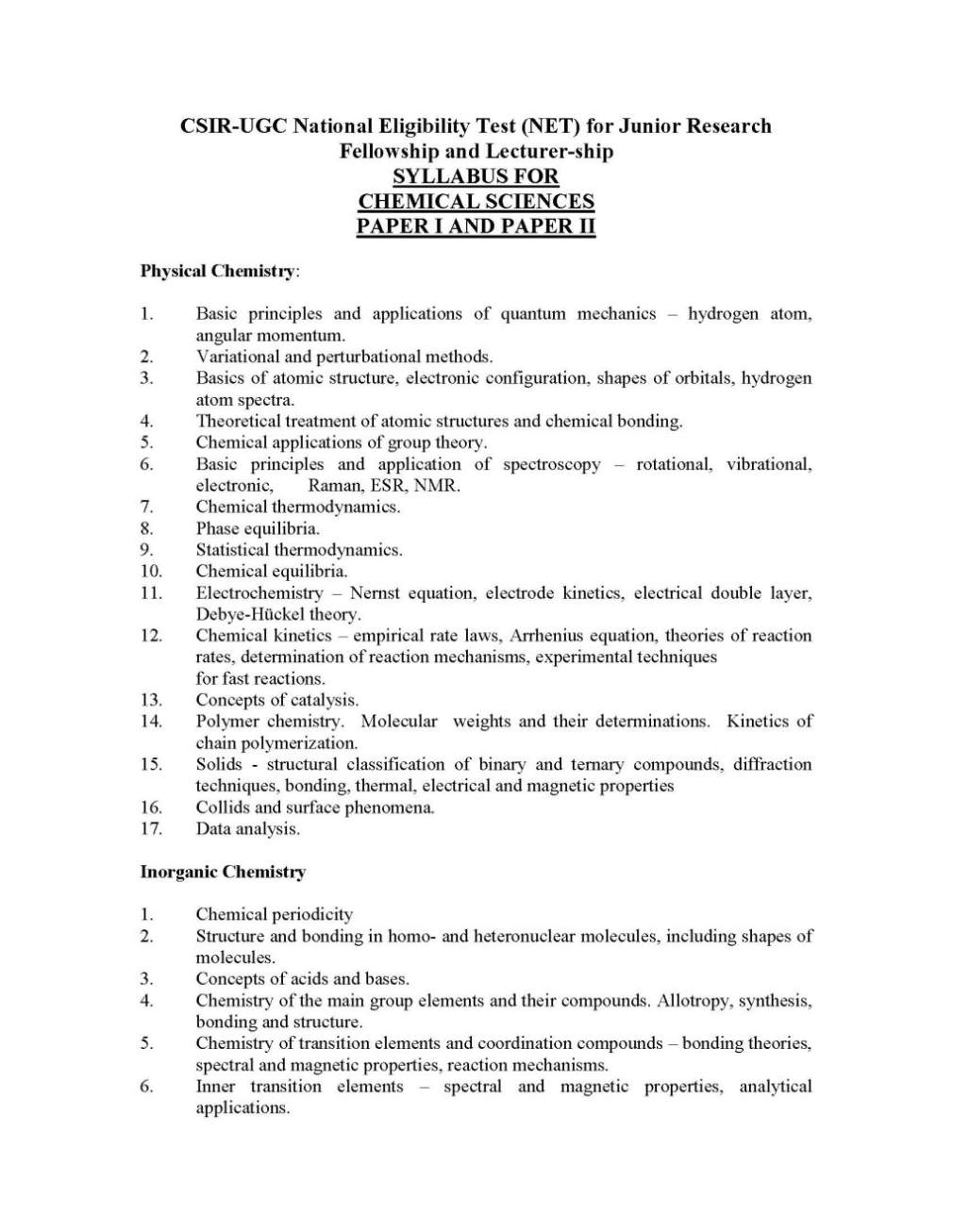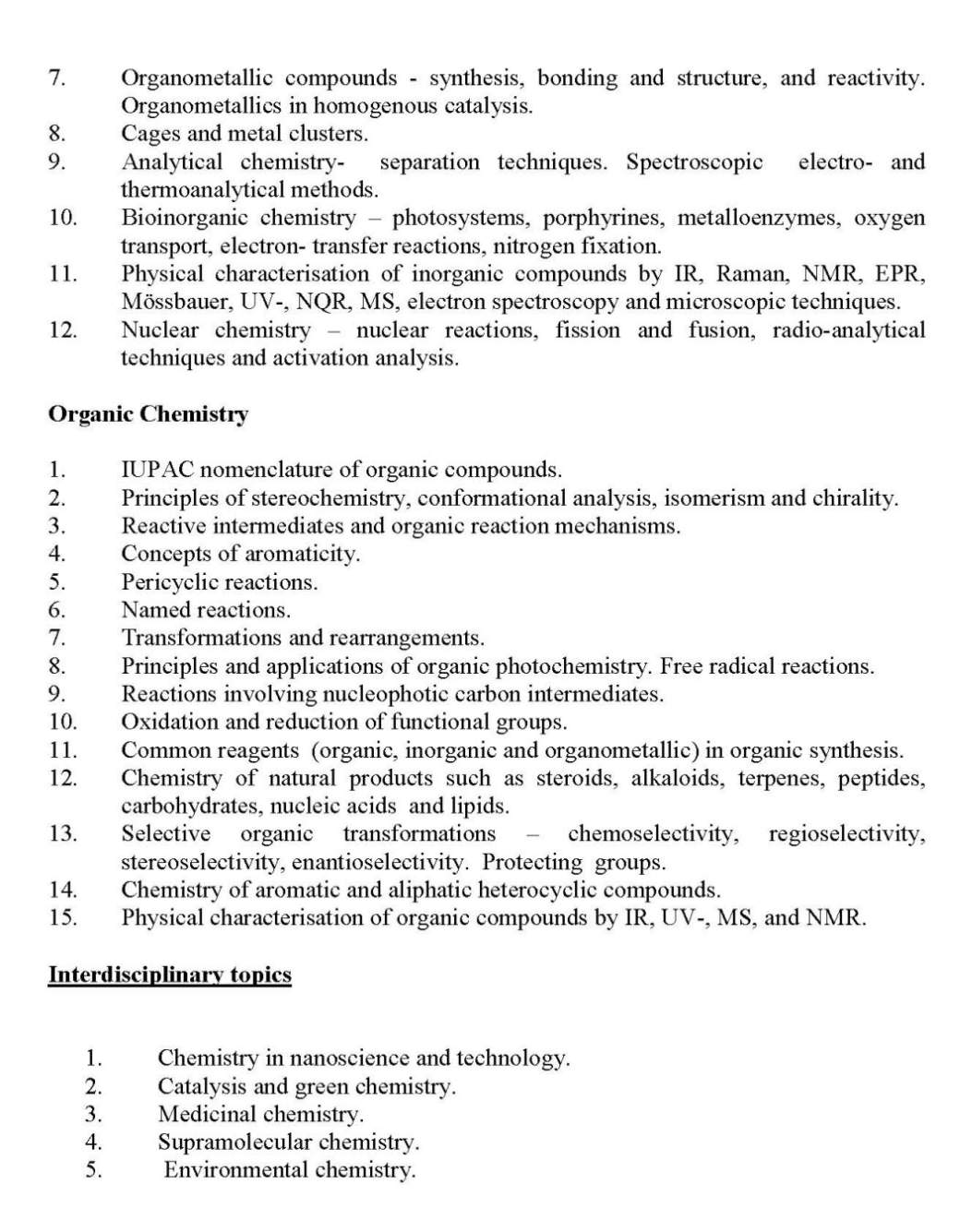|
#2
11th September 2015, 12:40 PM
| |||
| |||
| Re: UGC NET Chemistry Syllabus
Ok, as you want the syllabus of Chemistry of UGC National Eligibility Test (NET) exam so here I amproviding you. UGC NET exam Chemistry Syllabus Physical Chemistry: 1. Basic principles and applications of quantum mechanics – hydrogen atom, angular momentum. 2. Variational and perturbational methods. 3. Basics of atomic structure, electronic configuration, shapes of orbitals, hydrogen atom spectra. 4. Theoretical treatment of atomic structures and chemical bonding. 5. Chemical applications of group theory. 6. Basic principles and application of spectroscopy – rotational, vibrational, electronic, Raman, ESR, NMR. 7. Chemical thermodynamics. 8. Phase equilibria. 9. Statistical thermodynamics. 10. Chemical equilibria. 11. Electrochemistry – Nernst equation, electrode kinetics, electrical double layer, Debye-Hückel theory. 12. Chemical kinetics – empirical rate laws, Arrhenius equation, theories of reaction rates, determination of reaction mechanisms, experimental techniques for fast reactions. 13. Concepts of catalysis. 14. Polymer chemistry. Molecular weights and their determinations. Kinetics of chain polymerization. 15. Solids - structural classification of binary and ternary compounds, diffraction techniques, bonding, thermal, electrical and magnetic properties 16. Collids and surface phenomena. 17. Data analysis. Inorganic Chemistry 1. Chemical periodicity 2. Structure and bonding in homo- and heteronuclear molecules, including shapes of molecules. 3 . Concepts of acids and bases. 4. Chemistry of the main group elements and their compounds. Allotropy, synthesis, bonding and structure. 5. Chemistry of transition elements and coordination compounds – bonding theories, spectral and magnetic properties, reaction mechanisms. 6. Inner transition elements – spectral and magnetic properties, analytical applications. 7. Organometallic compounds - synthesis, bonding and structure, and reactivity. Organometallics in homogenous catalysis. 8. Cages and metal clusters. 9. Analytical chemistry- separation techniques. Spectroscopic electro- and thermoanalytical methods. 10. Bioinorganic chemistry – photosystems, porphyrines, metalloenzymes, oxygen transport, electron- transfer reactions, nitrogen fixation. 11. Physical characterisation of inorganic compounds by IR, Raman, NMR, EPR, Mössbauer, UV-, NQR, MS, electron spectroscopy and microscopic techniques. 12. Nuclear chemistry – nuclear reactions, fission and fusion, radio-analytical techniques and activation analysis. UGC NET exam Chemistry Syllabus   |